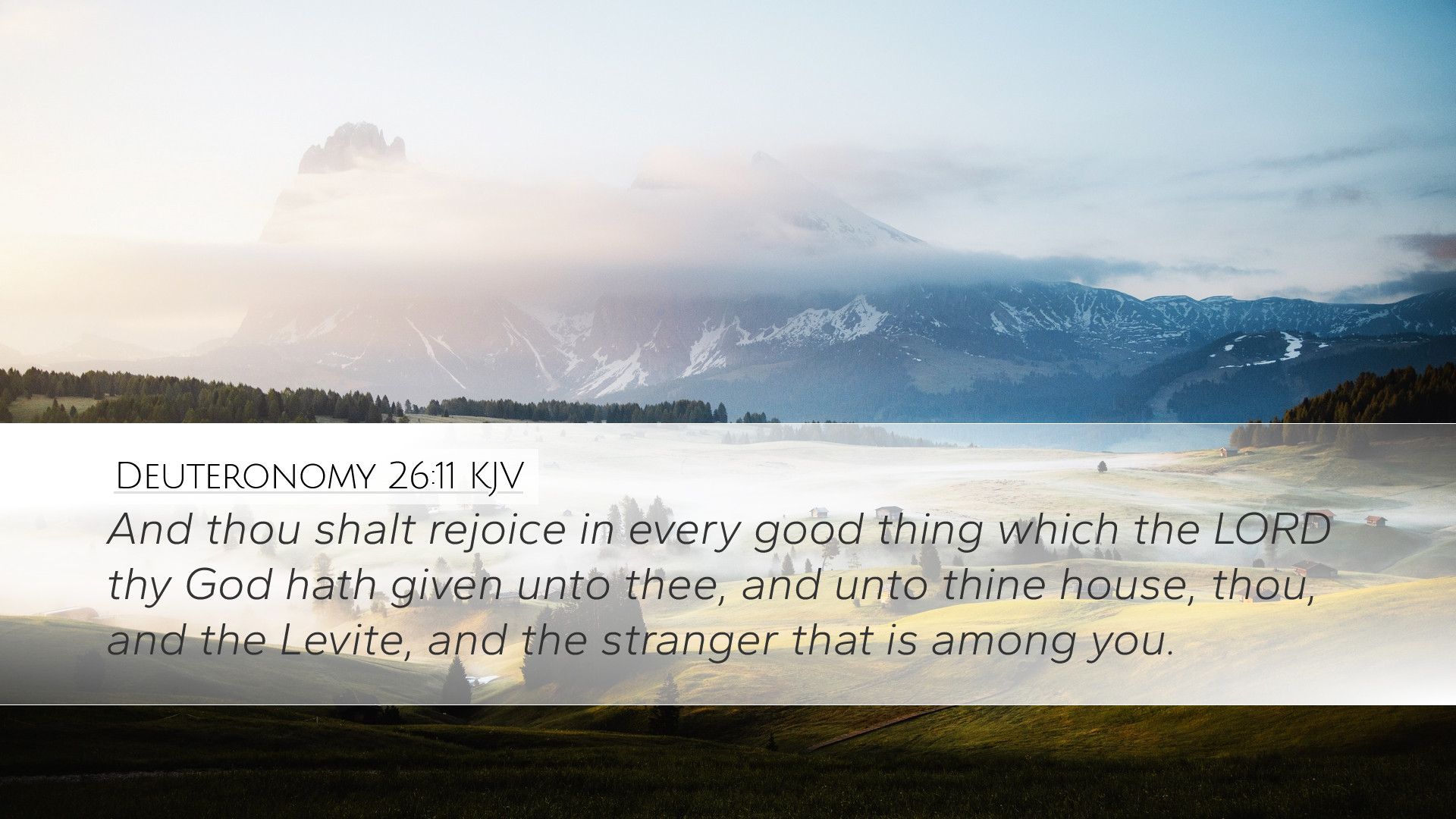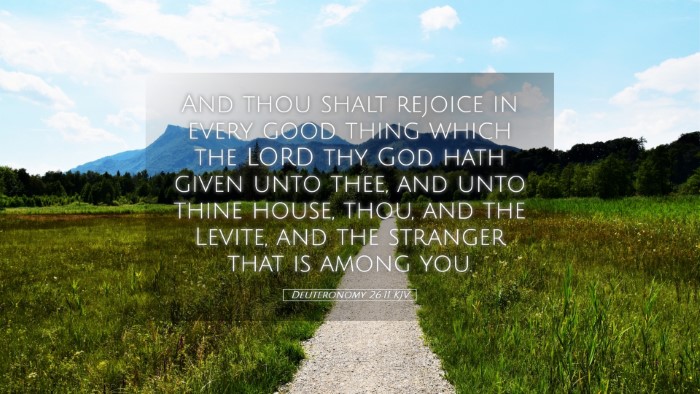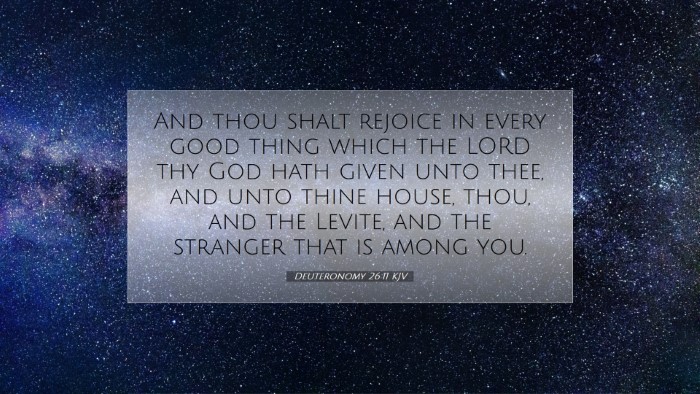Commentary on Deuteronomy 26:11
Verse: "And you shall rejoice in all the good that the LORD your God has given to you and to your house, you, and the Levite, and the sojourner who is among you." (Deuteronomy 26:11 ESV)
Introduction
This verse is situated within a broader context in Deuteronomy where the Israelites are instructed regarding their celebrations and the acknowledgment of God’s providence as they come into the Promised Land. In Deuteronomy 26, Moses elaborates on the declaration of faith and gratitude that the Israelites must make upon entering the land, emphasizing the significance of recognizing God’s blessings and participating in communal joy.
The Command to Rejoice
Emphasis on Joy: The obligation to rejoice is a recurring theme in Israel's relationship with God. Commentary from Matthew Henry indicates that the rejoicing is not merely an emotional response but a commanded act of worship and acknowledgment of God's goodness.
Community Aspect: The instruction does not single out individuals but invites the entire community—“you, and the Levite, and the sojourner”—to participate. This inclusivity reflects the communal nature of Israelite worship and life.
The Good Gifts of God
God's Provisions: Albert Barnes comments on the “all the good” as not being limited to material blessings but encompassing spiritual and relational blessings as well. The verse frames the understanding that whatever good comes to the Israelites is a direct result of God’s hand in their lives.
Acknowledgment of Divine Gifts: The act of rejoicing serves as a reminder for both individual and collective acknowledgments of God’s mercies. The verse serves an important liturgical function in Israel's worship, cementing gratitude as central to their spiritual life.
Inclusivity of the Community
Levites and Sojourners: The mention of "the Levite and the sojourner" expands the understanding of community, as the Levites had no land but a spiritual role among the people, and the sojourner represented those who were not native Israelites but were welcomed into the community of faith. As Adam Clarke points out, this inclusion fosters a spirit of unity and collective gratitude.
God's Heart for All: Theological implications suggest that God's blessings are meant to be shared and celebrated in community, breaking down divisions between locals and outsiders, highlighting God's overarching plan of salvation.
Theological Insights
Historical Context: In the historical context of this verse, the Israelites were transitioning into a new phase of life where God’s faithfulness would be essential for their identity as a nation. Commentaries suggest that this verse serves as a reminder to both ancient and modern believers of the necessity to cultivate a heart of joy.
Spiritual Application: For pastors and theologians, verse 26:11 calls for reflection on how we celebrate God’s blessings today. Are modern Christian communities fostering joy and gratitude that overflow into worship? Matthew Henry highlights the importance of fostering an atmosphere of gratitude and shared joy in our worship practices.
Practical Implications
Celebration in Worship: Churches today can draw from this scriptural command by integrating celebrations that highlight God’s goodness in their communities. Regular thanksgiving services can become focal points for congregational life.
Encouraging the Community: Community outreach programs that include the less fortunate, the Levites (or pastors/leaders), and the newcomers can foster an environment where everyone feels blessed and valued. This approach aligns with the biblical directive to rejoice together.
Conclusion
Deuteronomy 26:11 serves as a potent reminder of God's provision and the appropriate human response of joy and gratitude. Through the teachings of respected theologians like Henry, Barnes, and Clarke, we are encouraged to reflect on how we might embody these principles within our modern faith communities. As we gather with gratitude, may we remember not just the blessings we hold but also share that joy with all members of our community who seek to know and worship our God.


